International
Between weddings and gifts, Venezuelans celebrate the Day of Love and Friendship
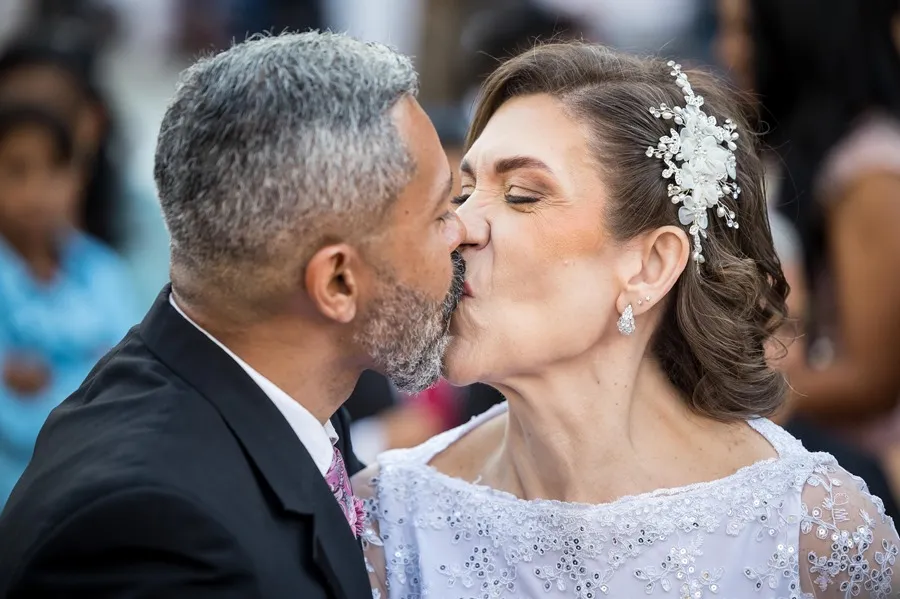
The celebration of Love and Friendship Day did not go unnoticed this Friday in Venezuela, where flowers, gifts of all kinds and even collective weddings broke everyday life in a country immersed in recent months in a political crisis following the presidential elections of July 2024, in which Nicolás Maduro was proclaimed winner among opposition claims.
Among the preferred flowers, balloons and chocolates, as EFE could verify in the streets of Caracas, to express their feelings to loved ones or friends, and, for lack of a budget, there was no lack of hugs and affectionate greetings.
Others took the opportunity to swear eternal love to their better half at collective weddings held in the Venezuelan capital and the city of Maracaibo, in the west of the country.
Altamira Square, in the heart of the municipality of Chacao (east of Caracas), hosted this Friday the union, in civil marriage, of a group of couples in a ceremony that has become a tradition to celebrate love on Valentine’s Day.
This time, 16 couples lived a special day, which included a makeup session for the ladies, rental of the suits for the wedding, photo sessions and an outdoor act in which the “yes, I accept” was heard.
The director of Municipal Justice of the Mayor’s Office of Chacao and civil registrar, Alejandro Urdaneta, explained to EFE that the activity, promoted by the local mayor, Gustavo Duque, reached its third edition this year and has as a framework the fountain of the Altamira Square, its obelisk and different recovered spaces.
The contractors, who previously registered with the municipal entity, also enjoyed a toast, gifts and a bottle of champagne to celebrate with their relatives.
One of the brides was Farides Galvis, 65, a pensioner and currently a housewife, who formalized before the law her union with her partner, which began 11 years ago.
She, born in the Colombian city of Valledupar, and he, a native of Barranquilla, met when Galvis was returning from work at her now husband’s kiosk.
“I’m looking for a husband,” the brand new bride who responded to her then suitor, who, without hesitation, said: “That’s me.”
Andreína Mendoca, 25, was also getting ready to celebrate her wedding, who told EFE that they chose this date because it was a “symbolic” day.
“We got the date, the opportunity, we wanted to formalize our home properly,” added this young woman, who has been sharing life with Johan for five years.
Also in Maracaibo, the capital of the state of Zulia, 39 couples got married in a collective wedding organized by the mayor’s office and another ten answered the invitation of a shopping center to formally unite their lives.
International
Colombia: Search continues for missing limb of italian scientist found dismembered
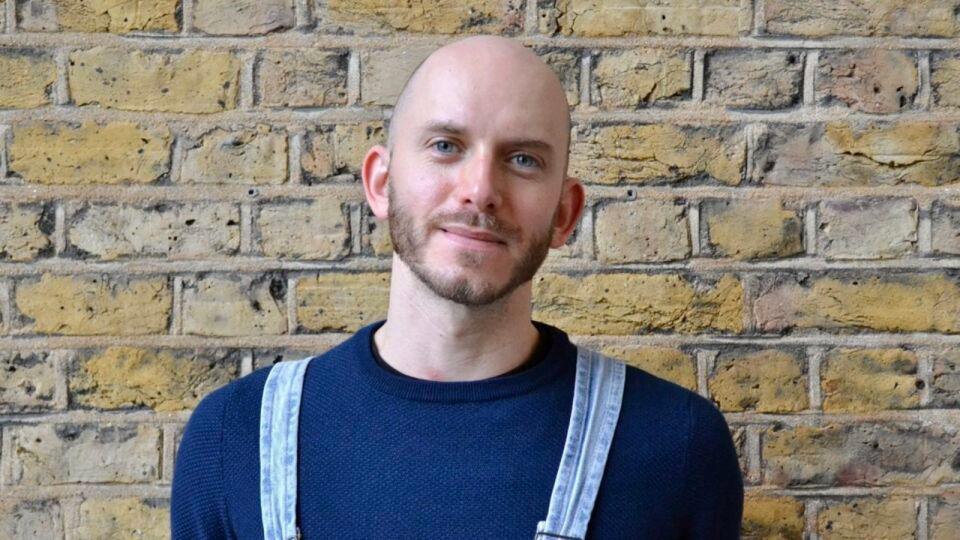
Rescue teams and Colombian authorities continued their search on Tuesday for the missing left leg of Italian biologist Alessandro Coatti, whose dismembered body was found in the Caribbean city of Santa Marta.
Coatti, 42, was a molecular biologist who had been traveling through South America after working for eight years at the Royal Society of Biology (RSB) in London.
He had been staying in a hotel in Santa Marta since April 3 and was later reported missing. His dismembered body began to be discovered on April 6, when parts were found inside a suitcase abandoned near a football stadium in an area known as Bureche.
“We’re conducting the search along the riverbanks and in the water to identify possible spots where, due to the river’s current, the missing left leg might be located,” Karlotz Omaña García, director of the Magdalena Civil Defense, told The Associated Press. Despite covering a 500-meter radius, the limb was not found.
Authorities have not named any suspects or shared possible motives. A reward of more than $11,000 has been offered for information leading to those responsible for the foreign scientist’s murder.
Police continue to reconstruct Coatti’s final movements. According to Colonel Jaime Ríos, head of the Santa Marta Metropolitan Police, the Italian biologist arrived in Colombia in January and had visited several locations, including Medellín, before traveling to Santa Marta.
Security footage shows Coatti was in downtown Santa Marta the night before his body was found, the colonel added.
Santa Marta, a popular Caribbean tourist destination, is known for its clear beaches. Police believe Coatti may also have visited Tayrona Park, a protected coastal area located about 34 kilometers (21 miles) from the city center.
International
MPV Denounces Electoral Blockade as Secretary-General is Disqualified for May Elections
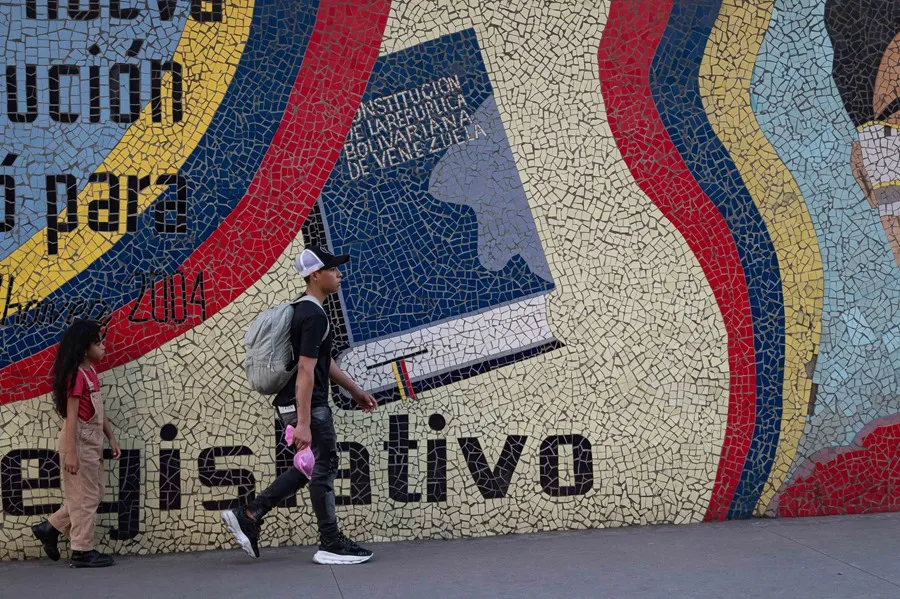
The anti-Chavista party Movement for Venezuela (MPV) denounced on Monday that it was “prevented” from submitting its candidates for the regional and legislative elections on May 25, elections rejected by opposition leaders Edmundo González Urrutia and María Corina Machado.
“MPV, being an active and recognized party in the National Electoral Council (CNE), was prevented from submitting candidates for the current electoral process,” stated the political group through a communiqué on X.
Additionally, the group denounced that its Secretary-General, Simón Calzadilla, was “suddenly disqualified,” as the opposition leader warned last Friday. He also explained that he attempted to access the CNE’s automated candidate submission system but, as he added, the portal showed that he was not authorized to create a user and submit the MPV candidates.
For the party, its “strong decision” to participate in the May elections “highlighted the true nature of this electoral process,” which it described as “extremely flawed.”
International
Maduro Plans Major Workers’ March on May 1st to Defend Venezuela’s Freedom
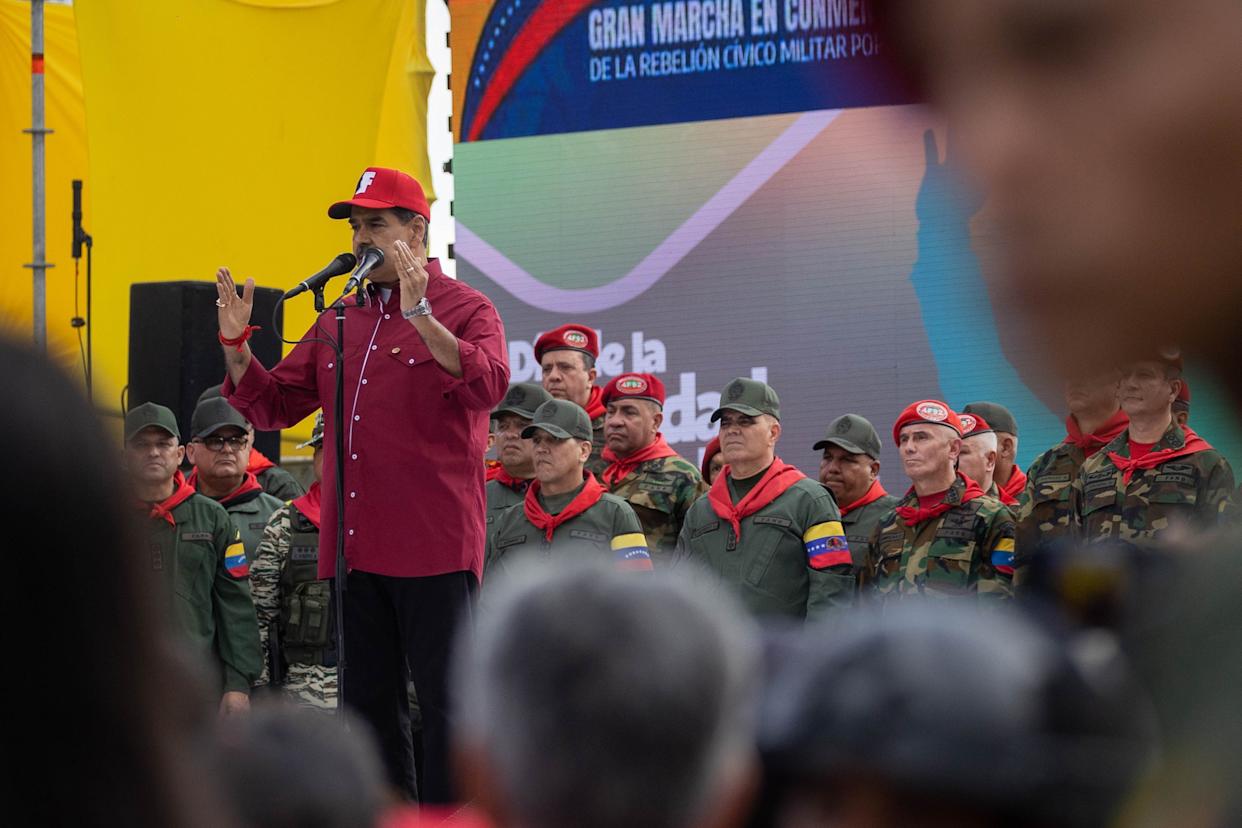
Nicolás Maduro, who swore in for a third term in January following his controversial re-election, called on Monday for the “working class” and the “armed people” to gather for a concentration on May 1st for peace, as part of the celebration of International Workers’ Day.
“Let’s have a powerful march of the working class, the combat bodies, and the Bolivarian National Militia in all the cities of the country, from end to end, working class and armed people in the streets shouting for peace,” said the chavista leader in a broadcast on the state channel Venezolana de Televisión (VTV), surrounded by military authorities.
He also stated that Venezuela is more armed than “ever” to “defend the sacred dream of a free homeland, the sacred soil of a heroic land, Venezuela.”
Maduro called on all military personnel to “stay in shape” with a “deployment capacity” and also to have “a very clear view of the entire national territory.”
-

 International5 days ago
International5 days agoDominican Republic mourns over 200 dead in Jet Set nightclub collapse
-

 International5 days ago
International5 days agoTwo fans killed in gate collapse outside Chile’s Estadio Monumental
-
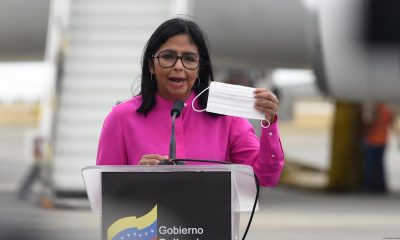
 International3 days ago
International3 days agoVenezuela accuses Guyana of “warlike intentions” after UK defense deal
-
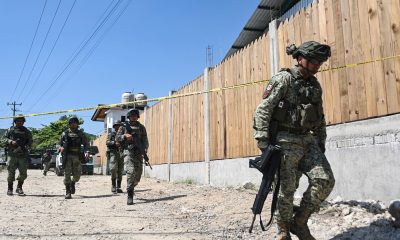
 International4 days ago
International4 days agoTrump Authorizes Military to Take Control of Federal Land Along U.S.-Mexico Border
-

 Central America4 days ago
Central America4 days agoSpanish Ex-Congresswoman Calls for ‘Bukele-Style’ Security Policies in Europe
-

 International3 days ago
International3 days agoNightclub Collapse in Dominican Republic Claims 226 Lives
-

 International5 days ago
International5 days agoVenezuelan oil shipments resume after tariff-induced delays
-
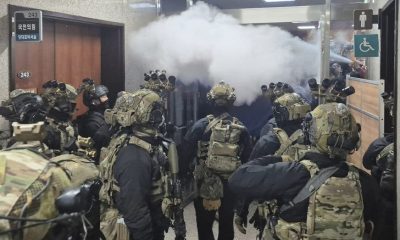
 International5 days ago
International5 days agoConstitutional Court Removes Yoon: Lee Jae-myung’s Rise Sparks Warnings of a Radical Shift
-

 Central America1 day ago
Central America1 day agoHonduran Police Offer $135K for Tips Leading to the Arrest of Romeo Vásquez
-

 International1 day ago
International1 day agoMaduro Plans Major Workers’ March on May 1st to Defend Venezuela’s Freedom
-

 International1 day ago
International1 day agoMPV Denounces Electoral Blockade as Secretary-General is Disqualified for May Elections
-

 Central America10 hours ago
Central America10 hours agoPetro questions Ecuador’s vote, cites reports of military control and arrests
-

 International10 hours ago
International10 hours agoColombia: Search continues for missing limb of italian scientist found dismembered















